How to protect your patio
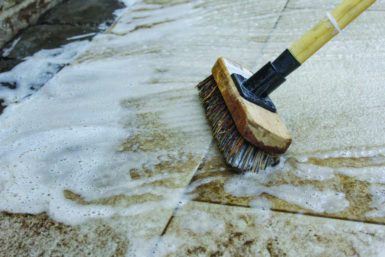
A guide on how to protect your patio or driveway
Keeping your external surfaces looking clean and new isn’t always easy, especially in areas that get a lot of use. Whether it’s a patio, driveway or garden path, it’s important to protect your surfaces from the elements, extending their lifespan and making the most out of your investment.
This article outlines the three main areas of how to protect your patio and other external surfaces.
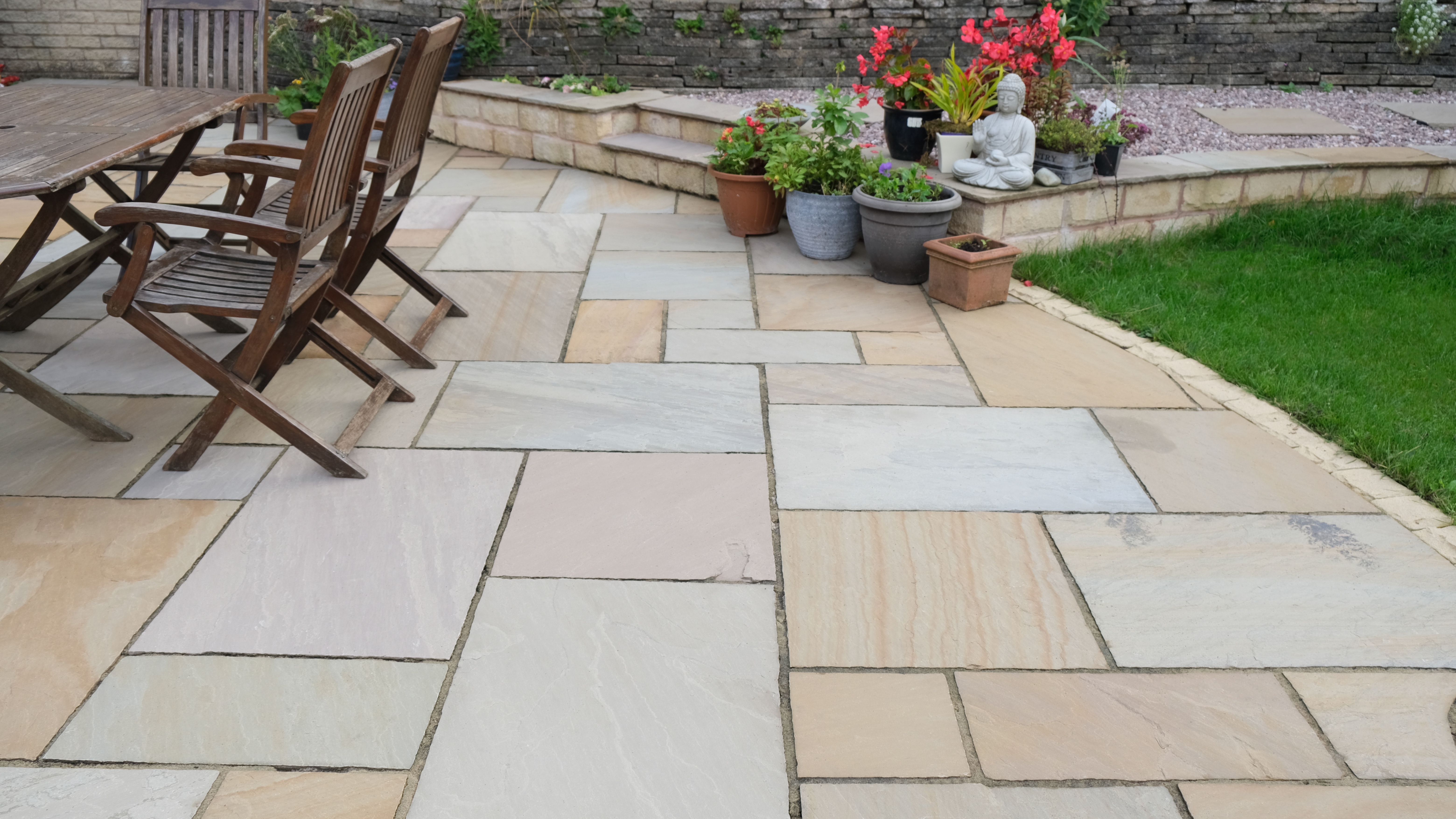
Correct installation
Keeping your patio or driveway protected starts before it has even been laid. If an external surface is poorly installed or lacks effective drainage, it could lead to long term damage that can be expensive to fix.
Use the right materials
- You don’t have to go for the most expensive option and there isn’t one type of paving material that is the best for everything. Do some research to find the most suitable one for your project.
- Concrete paving slabs offer a wide range of traditional and contemporary styles at a more affordable cost but may not be suitable for high traffic areas as they can wear down much easier.
- Porcelain paving slabs can be a more expensive option but is much stronger with very low porosity, which makes it much more resistant to stains.
- Whether you’re laying a block paving driveway or a natural stone patio, the stones you choose have a huge impact on the lifespan of the surface.
Remember: Think about what your surface will be used for and its surroundings so you can choose a material that looks right and will be durable enough to stand the test of time.
Install edging
- The edging of your patio or driveway doesn’t just help to build a neat border, it also creates stability and support for your surface.
- Effective patio edging installation will prevent your slabs or stones from moving over time and elongate the lifespan of your external surfaces.
Ensure effective drainage is in place
- If a patio or driveway doesn’t have sufficient drainage, water can pool up on the surface, causing algae and unwanted weeds to grow. It can also displace the jointing material for surfaces with paving stones or slabs.
- When you install a paved surface, ensure that there is a way for water to drain away. This could be done naturally if the patio is next to soil, or you can install a specially designed drainage system.
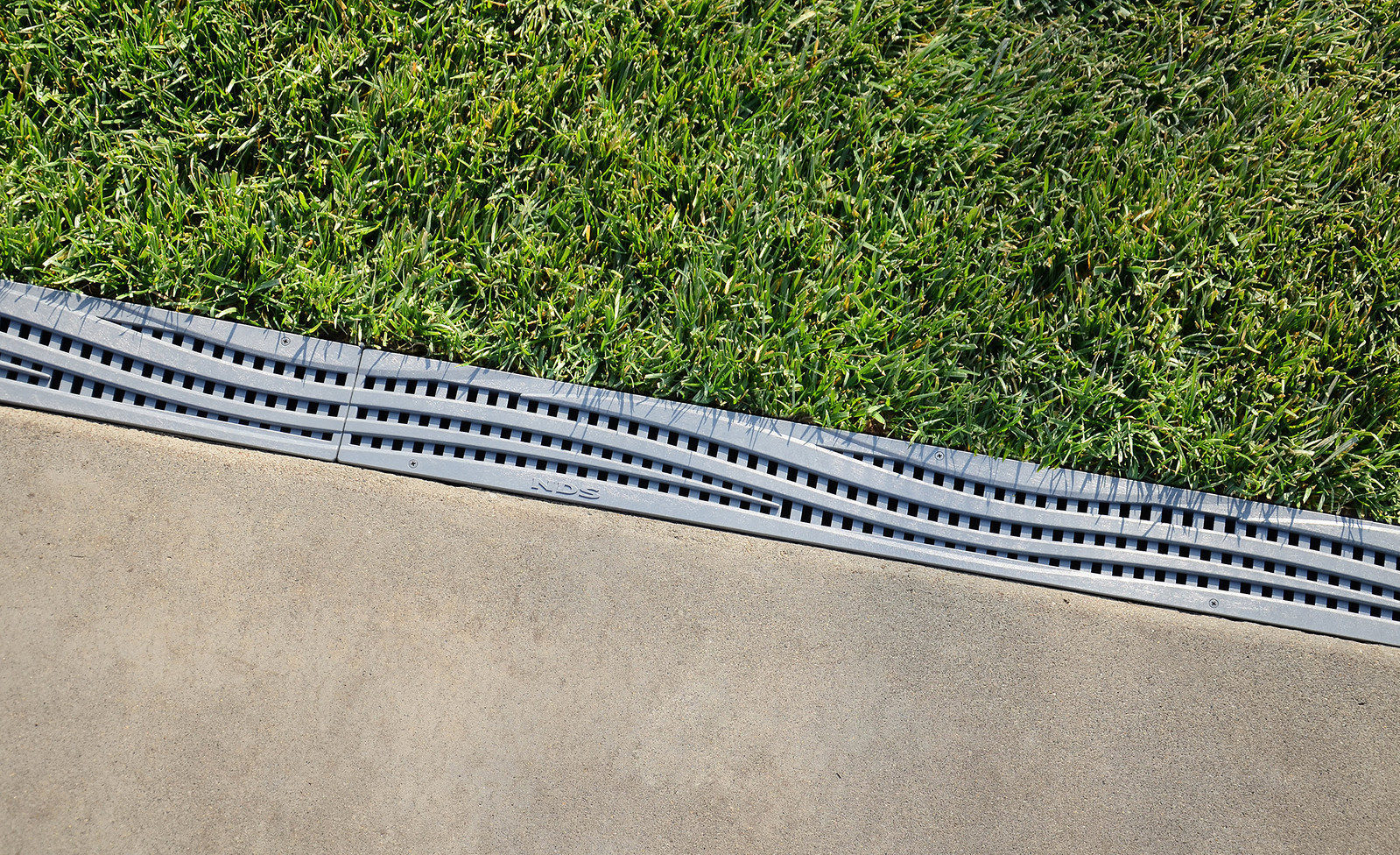
Use the right jointing compound
- Jointing is essentially a way of sealing the joints between slabs or stones to create a sturdy, level surface.
- If you fail to effectively joint your patio or you use a low quality jointing material, it can affect the stability of your patio or driveway over time.
- Depending on the type of paving materials you’re using and the final look you want to achieve, there are many various jointing options available which include jointing mortar, resin based jointing compounds, grouts or traditional sand and cement.
Use our Pavetuf jointing options table to find the best material for your needs and see what kind of finish to expect:
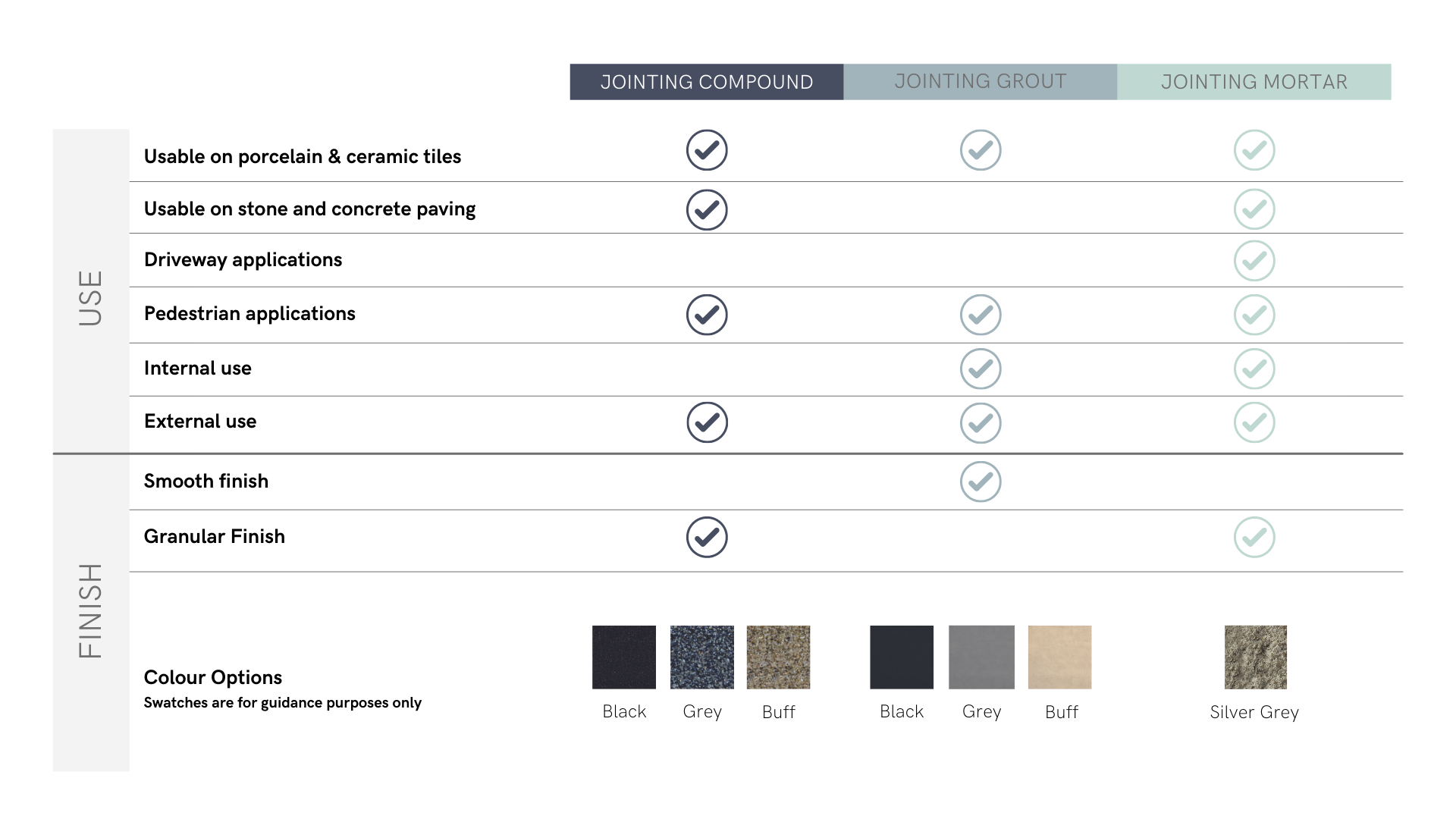
Quality protection
Choose the right sealer
Sealing your surface with a good quality patio sealer is an effective way of protecting your patio and extending its lifespan. These formulas are designed to create a protective layer across the surface of your paving stones, delaying the penetration of water and oils, reducing stains and making them easier to clean.
Not all paving products need to be sealed, for example porcelain products which have a very low porosity do not require sealing. There are a range of sealers available that offer different finishes such as satin or invisible. You can choose a sealer depending on the type of surface material you have.
- Satin sealers create a matte satin finish and offers breathable protection for porous surfaces.Invisible sealers are designed to create a protective layer over paving slabs without affecting the colour or texture of them.
- Invisible sealers are designed to create a protective layer over paving slabs without affecting the colour or texture of them.
Top Tip: Be sure to check how long you should wait before applying your sealer. Pavetuf sealers are breathable and can be applied before or immediately after installation.
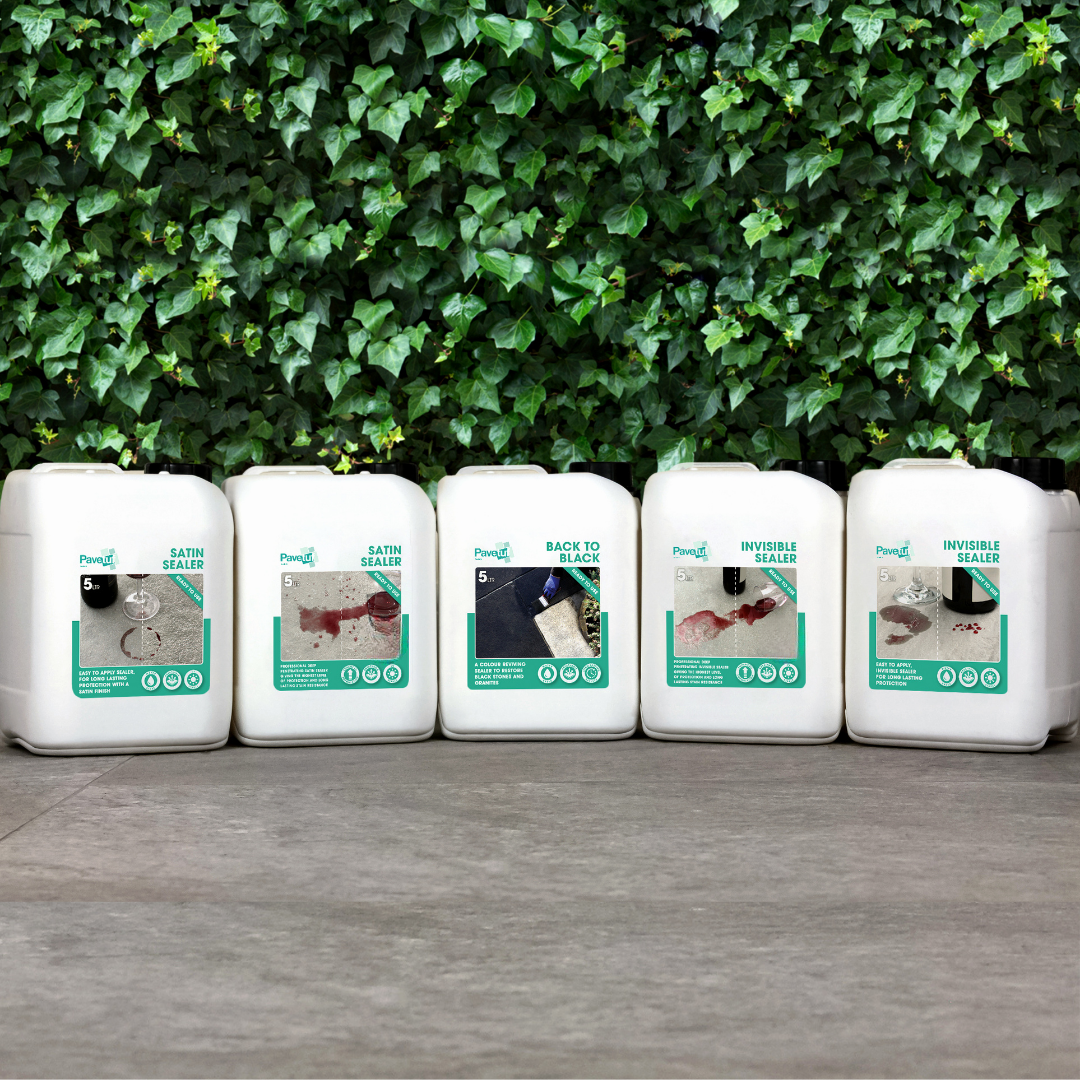
Minimise damage
Patios and driveways will get a lot of use over the years which can cause noticeable wear. Here are some ways you can reduce the amount of damage to your patio or driveway.
- Make sure chair and table legs have soft bottoms to reduce chips and scratches.
- Patio awnings and gazebos will minimise the amount of rain damage and help you to get more use out of your patio through all seasons.
- Take it steady on your driveway- sharp breaking, dry steering and quick starts can leave tyre marks on your paving stones.
Cleaning and maintenance
Regular patio cleaning
Regularly cleaning your patio is essential for maximising its lifespan and keeping it looking newer for longer. Here are some of our top patio cleaning tips:
- Regularly brush your patio week to week, removing any dirt and debris that has built up on the surface. Ensure you use a normal bristled brush as tougher bristles could damage the surface of the paved area.
- Thoroughly clean your patio or driveway at least once a season to clean away any surface grime and reduce the risk of unwanted weeds growing.
Use a high-quality patio cleaner suitable for your paving type to get a deep clean and clear away any oils or stubborn stains. Remember paving is just like any other product type in that using the right cleaning product for the right kind of stain will make the cleaning process so much easier. Imagine trying to clean your car with just water, it will most likely not get all bodywork clean, yet using the correct shampoo will actually make the cleaning effortless.
- A good quality pressure washer can make it easier to clean your patio without the need for tiresome scrubbing or brushing. Pressure washers should be used with care, on a low pressure and on a wide fan so the joints and surface of the paving are not damaged.
Patio maintenance all year round
- Accidents can happen and sometimes cracks may appear in your patio, so it’s important to look out for these and fix them. Depending on the paving design, you may need to use a hammer and chisel to remove the mortar and lay a new slab.
- Over time, jointing materials can begin to degrade, causing patio slabs to become loose. It’s important to repoint these by filling the gaps with fresh jointing product - this will help to avoid water seeping in and displacing other areas of the patio.
Reseal when necessary
If you choose to seal your natural stone, it can degrade or become dull after years of usage and weathering. Resealing can help to give it a clean, new appearance and extend its lifespan.
- Use a high quality sealer remover to clear away any residual sealer on your patio before applying a new layer.
- Re-sealing may also need to be done on any areas of the patio that need to be replaced or repaired.
A patio that lasts...
Maintaining your patio or driveway takes regular care and attention but having the right products makes it a lot easier. The range of landscape solutions from Pavetuf includes a variety of high quality cleaners, sealers, drainage systems and installation solutions that are designed to keep your external surfaces looking their best for years.